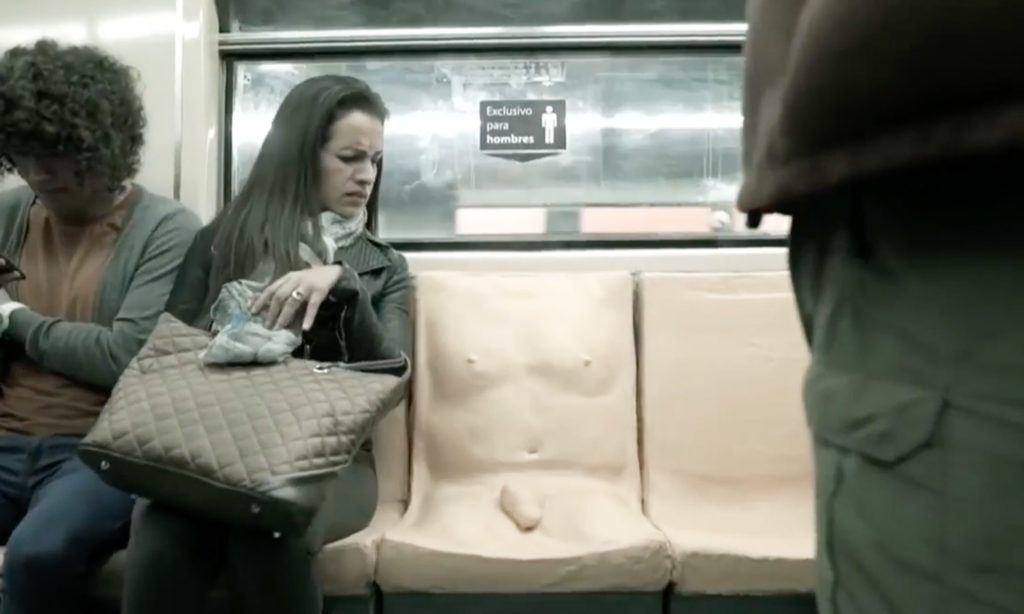“A new campaign hoping to tackle sexual harassment in Mexico has introduced a ‘sexist’ seat on the metro exclusively for men – complete with chest and penis. The seat was created to make men feel as uncomfortable as women on public transport and, judging by the accompanying video, it worked. Men are seen to consciously avoid sitting on the seat, or sitting on it without realising, only for them to quickly jump up and move. In front of the seat is a message to men, reading, ‘It’s uncomfortable to sit here, but it doesn’t compare with the sexual violence that women suffer in their everyday lives.’ The anti-harassment message has since gone viral, with the hashtag #NoEsDeHombres.”
I was in Mexico City a few weeks ago for the UN Women Safe Cities Global Leaders’ Forum and we heard from many Mexico City leaders, including the mayor, about their efforts to make public places safer for women. What struck me was that nearly every effort they discussed, such as women-only transit options and the distribution of thousands of whistles, put the onus on women to try to stay safe. What I appreciate about the “sexist” seat is that the message is directed at men. While no, the seat by itself is not enough to change the cultural norms that allow sexual harassment to occur, I think it is an example of a unique and attention-grabbing way to start discussions with men about sexual harassment in public spaces and why men must help stop it.
That said, would-be harassers are not the only ones who ride the subway and consideration should be made for survivors of sexual assault and others who could be upset by it.
UPDATE: I did an interview for BBC News on this initiative.


